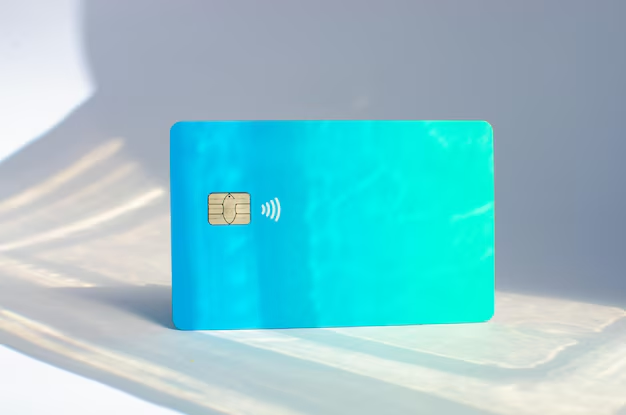Credit Card Options for Students: Exploring the Best Choices for Financial Independence
Navigating finance as a student is a unique challenge, and selecting the right credit card is often a critical first step toward financial independence. With the countless options available, how does one determine the ideal student credit card? This guide delves into the best student credit cards, examining features, benefits, and considerations to help you make informed decisions.
Why Consider a Student Credit Card?
Building Credit History Responsibly
Understanding credit early can shape a financial future. A student credit card is more than just a spending tool; it's a key to establishing credit history, a vital component in future applications for everything from car loans to rental agreements. Building a strong credit history can lead to lower interest rates and better borrowing terms.
Learn Financial Discipline
A credit card teaches financial responsibility, encouraging students to budget and spend wisely. Regular payments can instill discipline and financial literacy, which are invaluable skills in both personal and professional arenas.
Emergency Funds and Benefits
Credit cards offer financial backup during emergencies and can include benefits like cashback, reward points, and discounts on selected services, providing additional value.
Key Features of an Ideal Student Credit Card
Low Fees
Look for cards with no annual fees or low-interest rates. Avoiding high-interest balances is crucial for those on tight budgets.
Rewards and Cashback
Many student credit cards offer cashback on particular spending categories like groceries or gas. Look for rewards that align with your spending habits to maximize benefits.
Flexibility and Simplicity
Simplicity in terms and conditions can be a significant advantage. Flexible repayment options and straightforward reward schemes help in managing finances with ease.
Credit Limit
While many student cards start with low credit limits, choosing a card that offers potential credit line increases can be beneficial as your credit rating and trust with the issuer grow.
Top Choices for Student Credit Cards
Discover it® Student Cash Back
Discover it® is consistently ranked among the top student credit cards due to its student-friendly rewards program. With 5% cashback in rotating categories and 1% on other purchases, it offers generous perks. The bonus of matching earned cashback at the end of the first year adds further value, making it ideal for spending-conscious students. There’s no annual fee, and it reports to all three credit bureaus, aiding in building a robust credit history.
Chase Freedom® Student Credit Card
The Chase Freedom® Student Credit Card provides 1% cashback on all purchases and an additional $20 reward for keeping your account in good standing each year for the first five years. After the first year, cardholders may be eligible for a credit limit increase, enhancing purchasing power while maintaining a no-annual-fee stance.
Bank of America® Cash Rewards Credit Card for Students
This card lets students earn 3% cashback in a category of their choice, 2% at grocery stores and wholesale clubs, and 1% on all other purchases. The options span gas, online shopping, dining, travel, drug stores, or home improvement/furnishings—perfect for customizing rewards to your lifestyle. Bank of America also rewards responsible credit usage with opportunities for a higher credit limit.
Building Solid Credit: A Step-by-Step Guide
Consistent On-Time Payments
Payment history makes up a significant portion of a credit score, meaning late payments can negatively impact your score. Setting up automatic payments ensures that you never miss a due date, contributing positively to your credit history.
Maintain Low Credit Utilization
Keeping your credit utilization under 30% is advised to maintain a healthy score. This figure is calculated by dividing your total credit card balances by your total credit card limits.
Regular Credit Report Monitoring
Monitoring your credit report can help you stay on top of your credit health. Look for any discrepancies or errors and address them as soon as possible to avoid any long-term impacts on your scoring.
The Importance of Financial Education
Financial literacy is an essential complement to owning a credit card. Understanding interest rates, fees, and the effects of various financial actions helps students avoid costly mistakes and make the most of their financial products.
Resources and Tools
- Online Courses: Platforms such as Coursera and Khan Academy offer free courses on financial literacy.
- Apps and Software: Budgeting apps like Mint or You Need a Budget (YNAB) help track expenses and plan budgets, enhancing financial management skills.
Visual Summary: Key Tips for Choosing and Using a Student Credit Card
Here's a quick summary to help streamline your decision-making process:
Card Selection Tips 📋:
- No annual fees for budget-friendly management.
- Reward matching for maximizing perks.
- Align rewards with spending habits for added value.
Creditbuilding Strategies 🔍:
- Always pay on time to boost your score.
- Maintain a low credit utilization ratio.
- Check credit reports regularly for accuracy.
Final Reflections: A Strategic First Step
Choosing the right student credit card is more than just picking a piece of plastic; it is an educational step toward future financial independence. Balancing the benefits and responsibilities of a student credit card requires thoughtfulness and discipline. By understanding different offerings and using credit wisely, students lay the foundation for a solid financial future that will benefit them long after their educational journey ends.

Related Topics
- Alternatives To College Explained
- Best 529 Savings Plans
- Best Online Learning Platforms
- Best Student Loan Refinancing Options
- Cosigner Release Explained
- FAFSA Explained
- Federal Vs Private Student Loans
- Graduate School Funding Options
- Grants Vs Scholarships
- How To Build Credit As a Student
- How To Pay Off Student Loans Faster
- How To Save For College
- Income-driven Repayment Plans Explained
- Should You Consolidate Student Loans?
- Student Loan Deferment Explained
